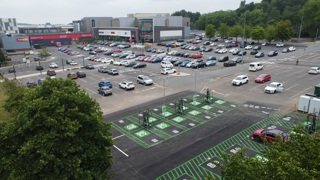The Government has announced a £30 million investment to help support research into battery technology, the electric vehicle (EV) supply chain and hydrogen vehicles.
Minister for Investment Gerry Grimstone has said that 22 studies will receive a share of £9.4m, including proposals to build a plant in Cornwall that will extract lithium for use in electric vehicle (EV) batteries, a plant to build specialised magnets for EV motors in Cheshire and lightweight hydrogen storage for cars and vans in Loughborough.
The Government-backed Faraday Institution is also committing the first year of a £22.6m programme to continue its work to further improve the safety, reliability, and sustainability of batteries.
The funding comes ahead of the ban on the sale of new petrol and diesel vehicles in 2030, as pledged in the Government’s Ten Point Plan. Research into alternative ways to power vehicles is a fundamental part of this transition, the Government says.
Grimstone said: “We have set an ambitious target to phase out the sale of new petrol and diesel cars by 2030. To support that it is crucial we invest in research so we can power ahead with the shift to electric vehicles as we build back greener from the pandemic.
“The world leading research announced today showcases the very best of British innovation and it will support all stages of the automotive supply chain to make the switch to electric vehicles - from developing batteries, to exploring how to recycle them.”
Investment in battery technology will help motorists and the environment by improving performance and reducing costs of electric vehicles (EVs) and will help support the creation of new jobs and new industries.
The Faraday institution will use the funding to explore:
- Battery safety, by investigating the root causes of cell failure in lithium-ion batteries and how this can lead to fires. It will also investigate the environmental consequences of such fires and help develop a consensus around the best method of fighting lithium-ion battery fires
- Solid state batteries, which have the long-term potential to deliver improvements in safety and increase the distance an electric vehicle can cover between charges
- Recycling and reusing batteries to increase the sustainability of the future automotive supply chain




















Login to comment
Comments
No comments have been made yet.